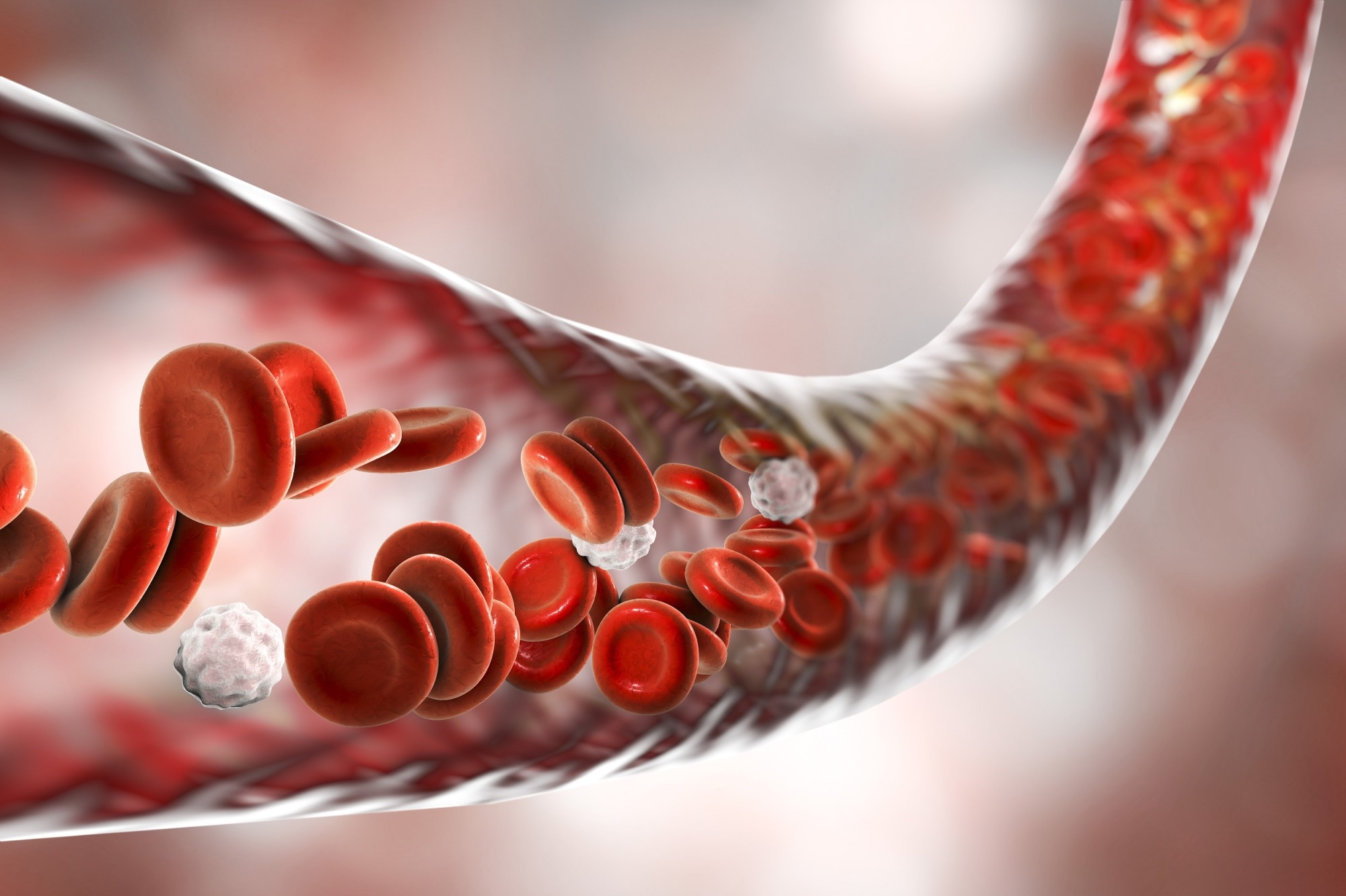Globally, atherosclerotic cardiovascular disease (ASCVD) is the primary cause of illness and death and is much more common in with type 2 diabetes mellitus (T2DM) patients than non-diabetic individuals. Nevertheless, for approximately ten years, the identification of distinct prognostic risk biomarkers remains challenging.
 Study: Circulating PCSK9 as a prognostic biomarker of cardiovascular events in individuals with type 2 diabetes: evidence from a 16.8-year follow-up study. Image Credit: Kateryna Kon / Shutterstock.com
Study: Circulating PCSK9 as a prognostic biomarker of cardiovascular events in individuals with type 2 diabetes: evidence from a 16.8-year follow-up study. Image Credit: Kateryna Kon / Shutterstock.com

 *Important notice: Research Square publishes preliminary scientific reports that are not peer-reviewed and, therefore, should not be regarded as conclusive, guide clinical practice/health-related behavior, or treated as established information.
*Important notice: Research Square publishes preliminary scientific reports that are not peer-reviewed and, therefore, should not be regarded as conclusive, guide clinical practice/health-related behavior, or treated as established information.
About the study
A total of 529 T2DM patients were included in the current study with a median age of 67 years. The diagnosis of T2DM was based on criteria established by the American Diabetes Association (ADA), which includes glycated hemoglobin (HbA1C) levels, fasting and two-hour blood glucose levels, and diabetes symptoms. Patients between 40 and 87 years of age who had a body mass index (BMI) of less than 40 kg/m2 were eligible for the study.
Researchers collected fasting blood samples from all study participants, from which the serum concentration of PCSK9 was measured using a commercial enzyme-linked immunosorbent assay (ELISA) kit.
Several covariates of the participants were assessed, of which included vital signs, anthropometric measurements, behaviors, medical history, and treatment. Blood cell counts, biochemical variables, and diabetic complications were also evaluated.
Statistical analyses were performed to compare PCSK9 levels, explore associations between variables, and identify factors related to T2DM complications and treatments. The association between PCSK9 levels and follow-up outcomes was determined using Kaplan-Meier curves and Cox proportional hazards analysis, with adjustments for relevant factors.
Study findings
At enrollment, 289 patients had at least one T2DM complication. Among the 240 patients without complications, 149 subsequently developed complications.
Survival rates were higher in T2DM patients without any complications. At a median follow-up of 16.8 years, 196 patients had died, with a mean survival time of 14.2 years.
The distribution of serum PCSK9 levels was moderately right-skewed, with a median level of 259.8 ng/mL. Serum PCSK9 levels were higher in females, particularly those with T2DM complications; however, age did not significantly impact PCSK9 levels in both sexes.
An analysis of T2DM complications and treatments revealed that serum PCSK9 was significantly higher in individuals with diabetic kidney disease and a history of MACE. Statin treatment was also associated with higher PCSK9 levels. Furthermore, correlation analysis showed positive associations between PCSK9 and markers of blood sugar homeostasis, as well as lipid profile markers.
Sex-specific cutoffs of 244 ng/mL for males and 299 ng/mL for females were determined to maximize survival prediction differences. Above these cutoffs, 31.3% and 51.8% of females and males, respectively, had elevated PCSK9 levels.
Univariate analysis revealed that PCSK9 levels exceeding cutoff values were associated with all-cause mortality exclusively in males; however, this correlation was not observed after adjusting for various factors. In females, PCSK9 levels were not associated with all-cause mortality; however, women with PCSK9 levels exceeding 299 ng/mL were at an increased risk of MACE.
Study takeaways
A sex-specific predictive ability of PCSK9 was determined for the occurrence of MACE and all-cause mortality in a long-term follow-up of patients with T2DM. To this end, PCSK9 was associated with MACE only in women and with death only in men.
The study findings emphasize the importance of identifying risk stratification biomarkers that reflect the underlying causes of atheroma in T2DM patients. While loss-of-function variations in PCSK9 have been linked to protection against cardiovascular heart disease, the prognostic value of PCSK9 as a biomarker for predicting MACE remains unclear.
Previous studies have shown mixed results regarding the association between PCSK9 and cardiovascular events, with some studies indicating a predictive value and others finding no significant association.
In the current study, PCSK9 levels increased with T2DM complications, such as previous MACE. Positive correlations were also observed between PCSK9 and markers of glucose homeostasis and lipid profile. However, PCSK9 levels demonstrated a sex-specific effect, with higher levels associated with increased MACE risk in women but not in men.
Conclusions
Approximately two-thirds of individuals with T2DM eventually developed ASCVD in the current study. Furthermore, the study findings indicate that serum PCSK9 levels can be considered part of a biomarker-driven approach to risk stratification.
Additional research is needed to understand better the prognostic value of PCSK9 and its sex-specific implications in predicting cardiovascular events and mortality in T2DM patients.

 *Important notice: Research Square publishes preliminary scientific reports that are not peer-reviewed and, therefore, should not be regarded as conclusive, guide clinical practice/health-related behavior, or treated as established information.
*Important notice: Research Square publishes preliminary scientific reports that are not peer-reviewed and, therefore, should not be regarded as conclusive, guide clinical practice/health-related behavior, or treated as established information.